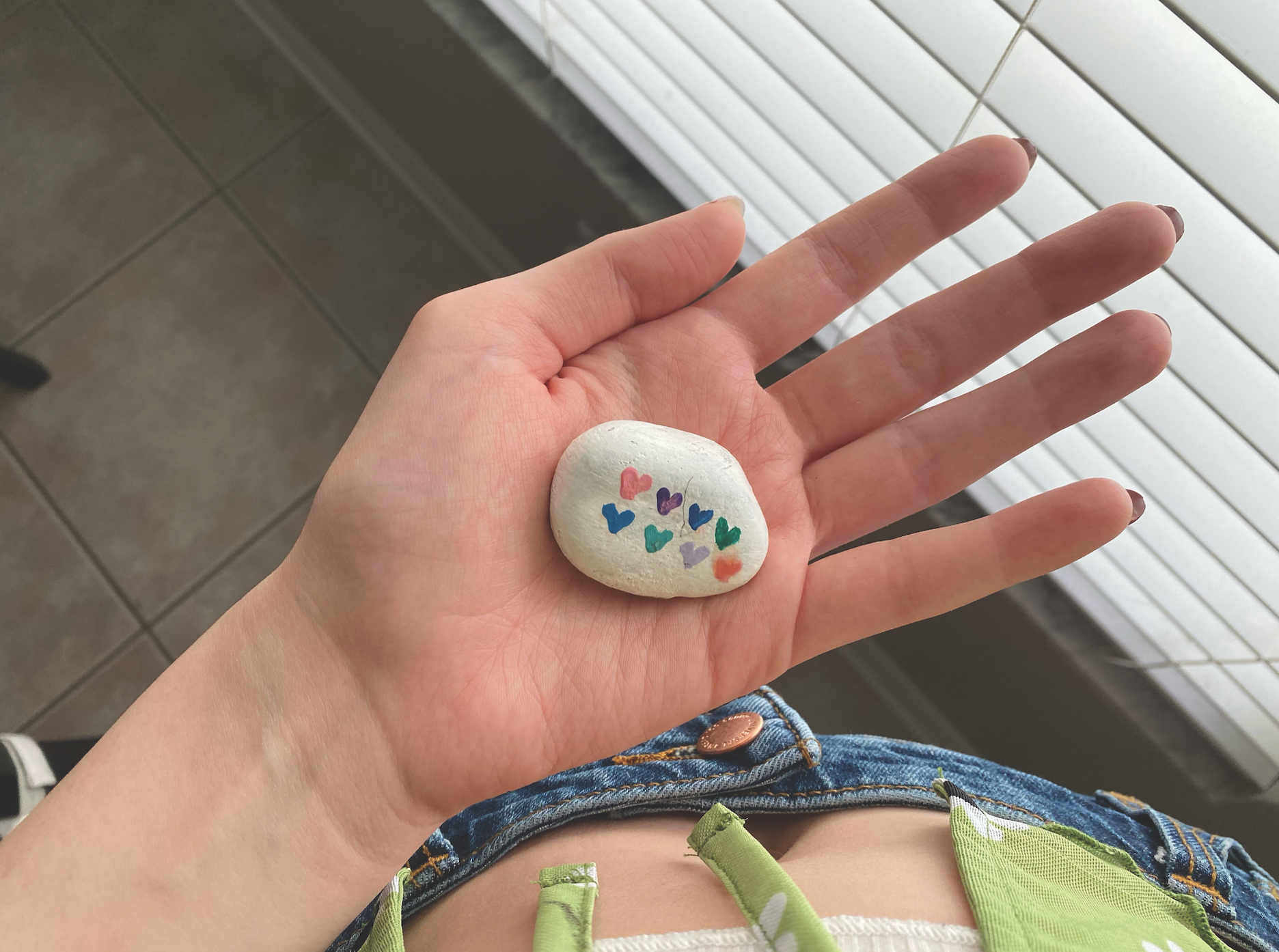Woes of a Chronic Gift-Giver
I’ve been told for a long time by many different people that my love language must be gift-gifting. More often than not, the person making this observation is someone I’ve just given a gift to. Touched by the personal thought I’ve put into the gift, they assume I give gifts to others to show my love, though I would posit the opposite: I give gifts to receive love.
Photographed by Hailey Kroll
My gift-giving is not rooted in love for others but rather insecurity. In the midst of my own anxieties about my relationships, I use gifts to avoid confronting any problems, real or perceived. When I felt like an outsider in my middle school friend group, I made one of the girls homemade cupcakes to win her over. When I felt my high school best friend was secretly mad at me, I’d put my card down for her late-night McDonald’s and refuse reimbursement. When I felt tension with my first-year roommate, I’d buy her the occasional crystal or astrology knick-knack.
While my actions may have been perceived as loving from the recipients, they certainly were not acts of love toward myself. I was sacrificing my own time and money to avoid the discomfort of confronting my own feelings or expressing myself in relationships that fueled anxious thoughts. Giving up material items initially felt easier than opening up, though the payoff did not last as long as I would have wanted.
In his research of the psychology behind the concept of love languages, Dr. Jeral Kirwan of University of Arizona says that “giving a gift increases feelings of satisfaction and helps to reinforce relationships.” Reading that statement, I realized I never had these feelings of satisfaction or relationship security after gift-giving. For me, it only allowed for temporary gratification and short-lived relief. Eventually, the cycle would repeat itself. By choosing not to address any problems—real or perceived—at their roots, they would keep popping up.
Gift-giving is nothing more than a temporary fix when it is used to mend cracks in a relationship’s foundation. Material items are not enough, especially in comparison to genuine effort and honest communication, to allow for relationship security. By realizing this, I found myself realizing that gift-giving is not my love language.
This isn’t to say that I have discovered my love language, nor am I looking into it at the moment. Regardless, it was important for me to discover what a love language was supposed to mean and how it was supposed to make one feel. Reading the psychology of love languages was a turning point: my security in my relationships was strengthened for only a moment before fading… I never felt better.
I needed to know that love languages are not only how you express your love to others; they include the act of loving yourself. There should be a mutual benefit from expressing this love. Gift-giving should be giving love to others and yourself—not simply giving all you have for the sake of security.

